Study maths in Austria - 4 institutions
-
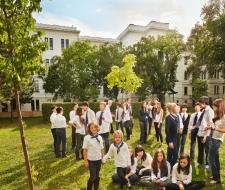 IB World School with an integrated Music and Arts Academy
IB World School with an integrated Music and Arts Academy AustriaViennaCurrently watching: 10from 46640.00 € / yearApply with documents
AustriaViennaCurrently watching: 10from 46640.00 € / yearApply with documents -
 Middle States Association of Colleges and Schools accreditation
Middle States Association of Colleges and Schools accreditation AustriaSalzburgCurrently watching: 9from 41000.00 € / yearApply with documents
AustriaSalzburgCurrently watching: 9from 41000.00 € / yearApply with documents -
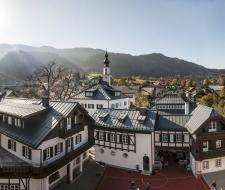 from 25900.00 € / yearApply with documents
from 25900.00 € / yearApply with documents -
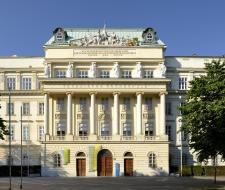 from 1500.00 € / yearApply with documents
from 1500.00 € / yearApply with documents
-
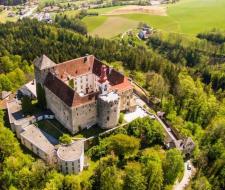
 AustriaViennaCurrently watching: 8from 39900.00 € / yearApply with documents
AustriaViennaCurrently watching: 8from 39900.00 € / yearApply with documents -
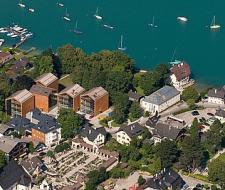 in 2018 an average IBDP score was 33
in 2018 an average IBDP score was 33 AustriaSt. GilgenCurrently watching: 3from 3600.00 € / 2 weeksApply with documents
AustriaSt. GilgenCurrently watching: 3from 3600.00 € / 2 weeksApply with documents -
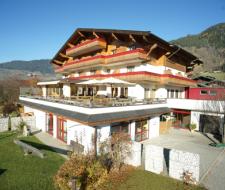 from 2800.00 € / 2 weeksApply with documents
from 2800.00 € / 2 weeksApply with documents -
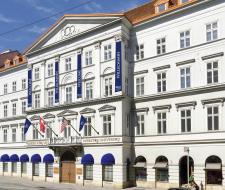 from 30240.00 € / 2 yearsApply with documents
from 30240.00 € / 2 yearsApply with documents -
 from 17390.00 € / yearApply with documents
from 17390.00 € / yearApply with documents -
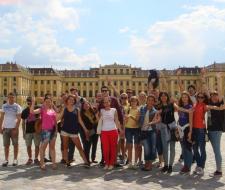 from 3000 € / weeksApply with documents
from 3000 € / weeksApply with documents -
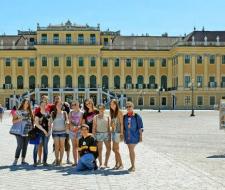 from 1874 € / 2 weeksApply with documents
from 1874 € / 2 weeksApply with documents -
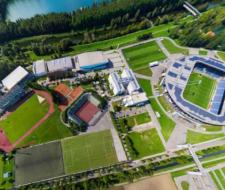
 AustriaViennaCurrently watching: 1from 35000.00 € / yearApply with documents
AustriaViennaCurrently watching: 1from 35000.00 € / yearApply with documents
Alternative destinations
Education information
Austria is one of the most comfortable countries for foreign citizens to move and live in. Foreign children can get secondary education here for free, the necessary conditions for adaptation are provided for them in schools, the quality of education is high, and the certificate obtained will not need to be confirmed when entering universities in any of the EU countries.
The secondary education in Austria is divided into two stages:
- Primary school – 6-9 years;
- Secondary school – 10-14 years.
At the 7-8 grade stage, special attention is paid to the choice of a specialty or a future academic program. Depending on the career choice course, various practical exercises are organized with excursions to industrial facilities and company offices. By the 9th grade, a student faces a choice between secondary technical education or continuing his studies in high school for admission to university.
Interestingly, open days in schools are held in February, and the acceptance of documents begins in March. The academic year begins in October and lasts until the end of June with a break in January.
Maths programme of the study in Austria – main specifics
Secondary education in Austria provides for the beginning of studying from the age of 6 — at this age, children enter primary classes — Grundschule, where they study for four years, and after graduation continue to study in secondary classes — Hauptschule. The students get acquainted with arithmetic through games. Interactive forms are developed by experienced teachers who lay in them elements of arithmetic knowledge and skills. The game system allows you to develop thinking, distribute the workload and teach children the elements of mathematical operations.
The next stage of teaching maths in private schools in Austria begins at the age of 11. At this age, special classes are held aimed at identifying abilities in mathematics. Pupils are divided into three or four groups, according to their abilities. The program for all groups is the same, but the intensity of studying in time is different. The level of tasks that the student performs corresponds to their level of knowledge and abilities.
Already in high school in Austria, the students choose a profile direction: mathematics, humanities, language, creative, sports, etc. With each subsequent class, the number of subjects to choose from increases, thanks to which students make up almost individual educational programs based on personal interests. The principles of teaching children contribute to the full involvement of children in the educational process so that studying abroad brings pleasure, joy, results.
All students in maths schools in Austria strive to complete an additional program, which is taught for them by special teachers. Skills related to filling out grant applications and receiving grants themselves are acquired here. The implementation of grants provides an opportunity to prove themselves in science.
Study GCSE maths in Austria – specifics of studying
GCSE (General Certificate of Secondary Education) is a secondary school program in Austria for children aged from 14 to 16. Duration of studying is 2 years (10th and 11th grade). At the end of the second year, children take an exam in each subject. The choice of a school for further study in high school depends on the results of final exams.
The curriculum consists of compulsory subjects and elective subjects. Their list may vary from school to school in Austria. The basic courses include: English, Literature, Mathematics, Biology, Chemistry, physics, history, geography and one foreign language. In addition to them, the student chooses 3-4 subjects. This can be, for example, astronomy, art, programming, business disciplines, statistics or psychology.
GCSE Maths is the main subject in Austrian education. Mathematics is a fundamental science, the study of mathematics allows the students to develop mental abilities, analytical, critical, abstract thinking, the ability to predict and generalize, trains memory and develops quick thinking.
Study A-level maths in schools in Austria
A-level is a British exam of Sixth Form stage. The program is designed for students aged 16-18, who want to continue studying at the university. This stage is not considered mandatory, general secondary education is a GCSE diploma in Austria (14-16 years old). A-level is already a full secondary education. Usually the course is designed for 2 years, sometimes they give you the opportunity to complete a year (accelerated course), but you need to try very hard and prove that you will pull the intensity.
A-level Math is designed for 90 minutes and is divided into 4 sections:
- Core mathematics includes: equations, simplifications, logarithms, derivatives, etc.;
- Futher pure mathematics is already "pure" mathematics, closer to the highest: complex numbers, series, matrices and other in—depth concepts;
- Statistics is probability theory and mathematical statistics;
- Decision mathematics — "mathematics of decision making", a symbiosis of discrete mathematics and solving problems on graphs.
Enrolment requirements in maths schools in Austria
To enroll in an Austrian school, the foreign students need to provide the following package of documents:
- Birth certificate
- Medical certificate
- Certificate of completed education.
It is important that all of the above documents be translated into German in advance in compliance with the apostille. The advantages of the Austrian educational system already at its very initial stages are transparency, accessibility and a high level of knowledge obtained.



